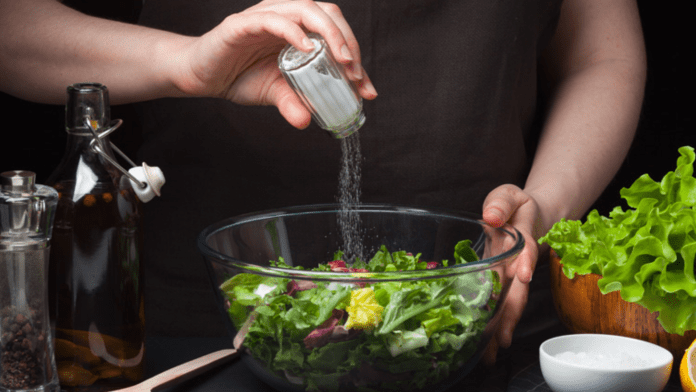Salt is a fundamental ingredient in cooking, enhancing the flavors and bringing out the best in various dishes. However, it’s easy to accidentally overdo it and end up with an overly salty meal. Excessive saltiness can ruin the overall taste and balance of a dish, leaving you worried and unsure about how to salvage it. Fortunately, there are several proven hacks that can help you fix an overly salted dish quickly and efficiently. In this article, we will explore these hacks, providing you with practical solutions to rescue your meals and ensure they still turn out delicious. So, the next time you find yourself facing a salty mishap in the kitchen, don’t panic! Just follow these tips and impress your guests with your ability to salvage any culinary disaster.
Dilution and Adjustment:
- Increase the recipe: One effective way to mitigate excessive saltiness is by increasing the overall quantity of the dish. By adding more ingredients without salt, the saltiness will be diluted, resulting in a milder flavor. This method works well for soups, stews, and sauces that can be easily expanded.
- Add acidity: Acids, such as lemon juice or vinegar, can help counterbalance the saltiness in a dish. The tartness of these ingredients helps to neutralize the salty taste. Start by adding a small amount and gradually increase if necessary, ensuring not to overpower the flavors of the dish.
- Include sweetness: Sweetness can also help counteract saltiness. Adding a touch of sugar, honey, or a sweet ingredient like diced fruits can balance out the excessive salt. However, use this method sparingly, as too much sweetness can create an imbalance.
Absorption and Extraction:
- Use starch: Starchy ingredients like potatoes, rice, or bread can absorb excess salt. Adding a peeled potato or a few spoonfuls of uncooked rice to the dish and allowing them to simmer can help reduce the saltiness. Once they have absorbed the salt, remove and discard them before serving.
- Include unsalted ingredients: Adding unsalted versions of the main ingredients can help dilute the saltiness. For example, if you have an overly salty pasta dish, cook some plain pasta separately and mix it with the salty pasta. This technique distributes the excess salt throughout a larger volume, reducing its impact on individual servings.
- Rinse or soak: If the dish allows, rinsing or soaking the salted ingredient can help remove some of the excess salt. This method is particularly useful for salted meats like ham or bacon. Soaking them in water for a while can help draw out the salt. Remember to taste the ingredient after soaking to ensure the desired salt level.
Masking and Adjusting:
- Increase bulk with unsalted components: By adding more unsalted ingredients to the dish, you can dilute the saltiness while maintaining the desired flavors. For example, if you have an excessively salty stir-fry, add more vegetables or protein without salt to balance it out.
- Cream or dairy: The creaminess of dairy products can help mellow down the saltiness in certain dishes. Adding a splash of cream, a dollop of sour cream, or a drizzle of yogurt to sauces or curries can help mask the excessive salt.
- Fresh herbs and spices: Introducing fresh herbs like parsley, cilantro, or basil can help distract the taste buds from the saltiness. These herbs bring a burst of freshness and provide a counterpoint to the excessive salt, making the dish more enjoyable.
Prevention and Precautions:
- Taste as you go: The best way to avoid an overly salty dish is to taste and season gradually while cooking. By adding salt in stages, you have better control over the overall saltiness, reducing the risk of overseasoning.
- Use low-sodium alternatives: Consider using low-sodium or no-salt-added ingredients when possible. These alternatives can help you maintain a healthier diet and reduce the likelihood of adding excessive salt accidentally.
Final Thoughts:
While an overly salty dish can be disheartening, it’s important not to panic. With these proven hacks at your disposal, you can rescue your meals and transform them into delicious creations. Whether it’s through dilution, absorption, masking, or preventive measures, there are numerous ways to fix an overly salted dish. Remember to experiment and adjust the methods according to the specific dish and your personal taste preferences. By employing these hacks and maintaining a mindful approach to seasoning, you can ensure that your future culinary endeavors are well-balanced and full of flavor. So, the next time you find yourself facing a salty mishap, stay calm and follow these tips to save the day in the kitchen!





